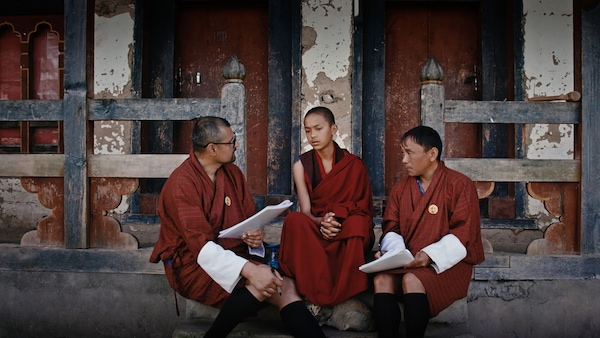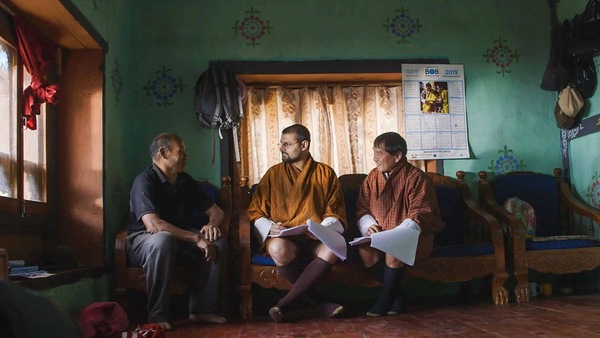Sundance 2024: Agent Of Happiness Is A Documentary That Sparks Joy
The Sundance-screened documentary follows two government-appointed happiness surveyors who are tasked with meeting people and gauging their happiness.

Last Updated: 03.43 PM, Feb 06, 2024
This review is part of our critics' round-up of six of the best titles at the 2024 Sundance Film Festival.
***
“HOW HAPPY ARE YOU?” — Arun Bhattarai and Dorottya Zurbó’s Agent of Happiness chases this question. The Sundance-screened documentary follows two government-appointed happiness surveyors who are tasked with meeting people and gauging their happiness. In Bhutan, the country where the filmmakers turn their gaze, the emotion is taken seriously enough to be measured and factored in the development. Happiness is treated as a national responsibility and touted as the national reputation — “Bhutan: Happiness is a place”.
Despite the promise of quantifying, Agent of Happiness is almost philosophical in its pursuit. Bhattarai and Zurbó’ work, so precise that it feels orchestrated like fiction, does not reaffirm the nation’s belief that happiness can be calculated. Instead, it uses that as a scaffolding and unfolds as a charming reiteration of the elusive nature of happiness and the abiding need for it. The documentary tracks two government officers who go about their days making the assessment through a detailed questionnaire (queries range from do the respondents own livestock to whether they are afflicted with a general sense of worry). But it soon becomes clear that the focus is on one of them: the 40-something Amber who empathetically listens to people and estimates their happiness while waiting at the door.

On paper, the dichotomy is fascinating. Having an unhappy man as an agent of happiness makes for an absorbing subject of nonfiction. There is a lack in his life. Amber lives with his old mother; he dreams of companionship. Being ethnically Nepali, his sense of identity is reliant on bureaucratic red tape. He regularly writes letters to the monarch to facilitate his citizenship. Without that, he is not so much living as he is stranded in Bhutan.
But if Agent of Happiness never becomes about mindless competition it is because the film remains sternly opposed to demystifying happiness. Instead, it unravels as a series of humanistic portraits (Amber being one of them) and uses the questions that eventually add up the The Gross National Happiness (GNH) Index as tiny ingresses into the minds of people. During the runtime, we meet a widower who is yet to come to terms with his wife’s death, a man with three wives (he is also the only one who clocks a full mark on the test thus begging the question — is happiness an entirely selfish act?), a transgender singer with a terminally ill mother, a daughter with an alcoholic mother.

Bhattarai and Zurbó know when to probe and when to observe. The documentary is frequently filled with voiceovers from the people who appear on camera with the makers generously making place for them to voice their fears, vent their concerns. A young girl confesses she has nightmares of her mother’s death. Who will take care of her younger sister then? The singer longs to be beautiful even as her mother insists that she is beautiful the way she is.
These vignettes give away to one standout moment when three women, wedded to one man, sit together and discuss the man. Notwithstanding the way their relationship might be perceived, they are each other’s friends and confidantes. They talk about him, refer to the way he used to be with other women. But he has a paunch now, one of them observes and lets out a giggle. It’s a lovely instance that punctures holes in the rigour the government has introduced in determining happiness.
This stands in line with the bittersweet scene when Amber breaks into a light jig after driving the woman he saw a future with, to the airport. She wants to pursue a Master’s degree in Australia and without citizenship, he does not even have a passport. Her absence might have crushed his heart but he singles out a moment for himself. He lets loose and refuses to worry. In that singular instance he outlines the agency of happiness — to live one more day, to hope for one more day. The feeling is transient, elusive and beautiful.
